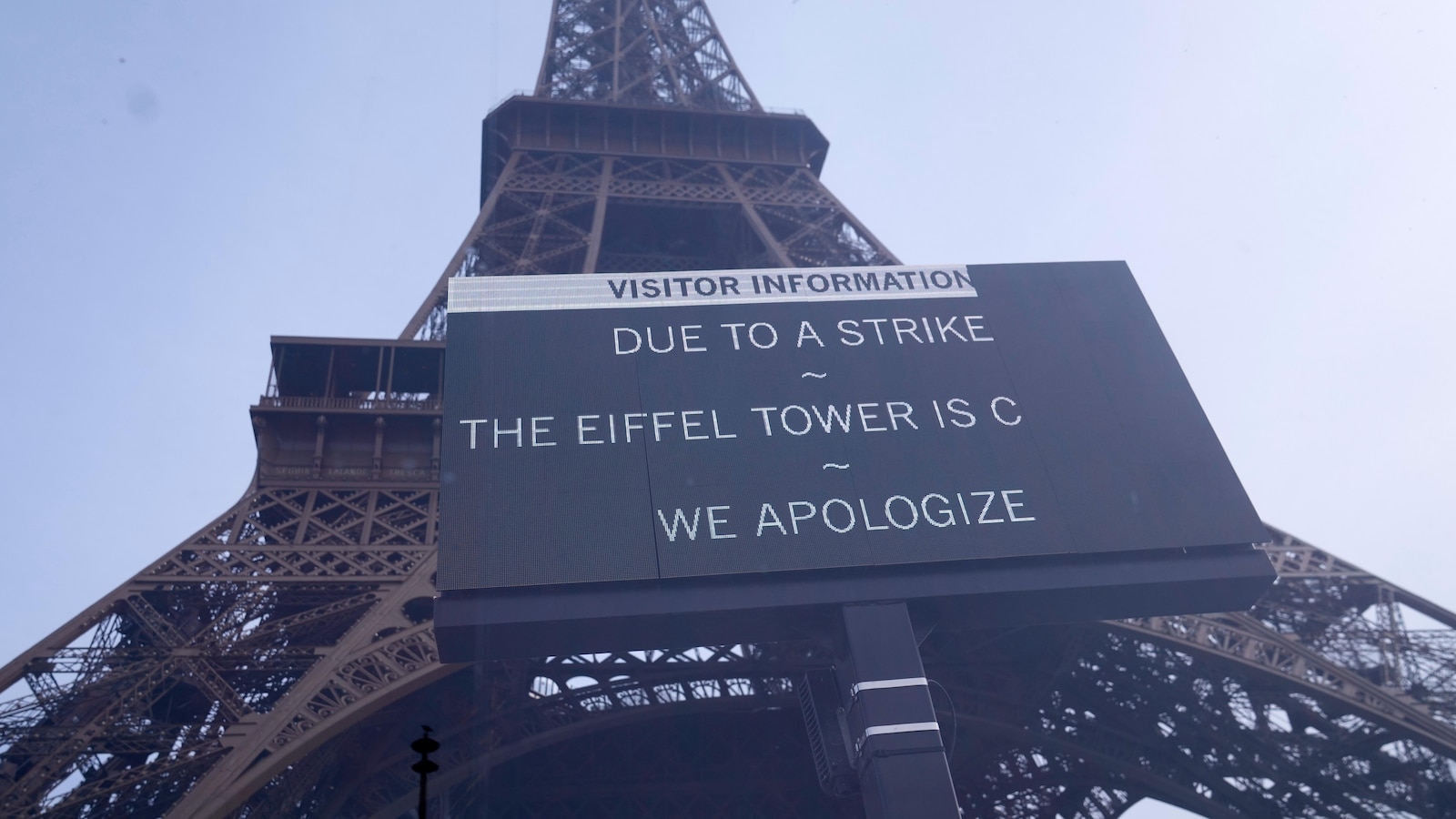French Protests Erupt Nationwide Against Austerity Measures
Nationwide strikes and protests against austerity measures have erupted across France, leading to the Eiffel Tower's closure, as unions urge Prime Minister Lecornu to abandon budget plans.
Subscribe to unlock this story
We really don't like cutting you off, but you've reached your monthly limit. At just $5/month, subscriptions are how we keep this project going. Start your free 7-day trial today!
Get StartedHave an account? Sign in
Overview
- Approximately 85,000 protesters demonstrated across France, excluding Paris, in nationwide strikes against austerity measures and spending cuts, leading to the closure of the Eiffel Tower.
- Unions are urging newly appointed Prime Minister S 00e9bastien Lecornu to abandon draft budget measures, including social welfare freezes, proposed by his predecessor.
- Protesters in over 200 towns and cities called for higher taxes on the wealthy, highlighting widespread discontent with the government's economic policies.
- Despite the strikes, high-speed train services operated normally, though some regional and commuting train lines experienced partial disruptions and reduced capacity.
- The deeply divided parliament is expected to debate the controversial budget bill by the end of the year amidst ongoing public pressure and union demands.
Report issue

Read both sides in 5 minutes each day
Analysis
Center-leaning sources frame this story by emphasizing the widespread public discontent and the disruptive nature of the strikes. They highlight union grievances regarding austerity measures and potential erosion of purchasing power, while offering less detail on the government's rationale or broader economic context. The language used often underscores the intensity of the protests.
Articles (3)
Center (2)
FAQ
The unions are protesting against draft budget measures proposed by the previous government that include social welfare freezes, a government spending freeze, pension levels maintained at 2025 amounts, and cuts aiming to reduce public deficit significantly.
The Eiffel Tower was closed because the nationwide strikes led by major French unions disrupted services and operations, including tourist attractions, to protest austerity measures and budget plans.
Protesters are calling for higher taxes on the wealthy to ensure that France's most affluent contribute more fairly to national finances, opposing the austerity plans that freeze social welfare benefits.
Newly appointed Prime Minister Sébastien Lecornu has not yet revealed detailed budget plans but intends to start anew, consulting unions and political groups. He opposes reversing pension reforms and has ruled out imposing a wealth tax, indicating a more cautious approach than his predecessor.
While high-speed train services operated normally, some regional and commuter train lines experienced partial disruption and reduced capacity. The strikes have led to closures such as that of the Eiffel Tower and widespread demonstrations in over 200 towns and cities.
History
- This story does not have any previous versions.

